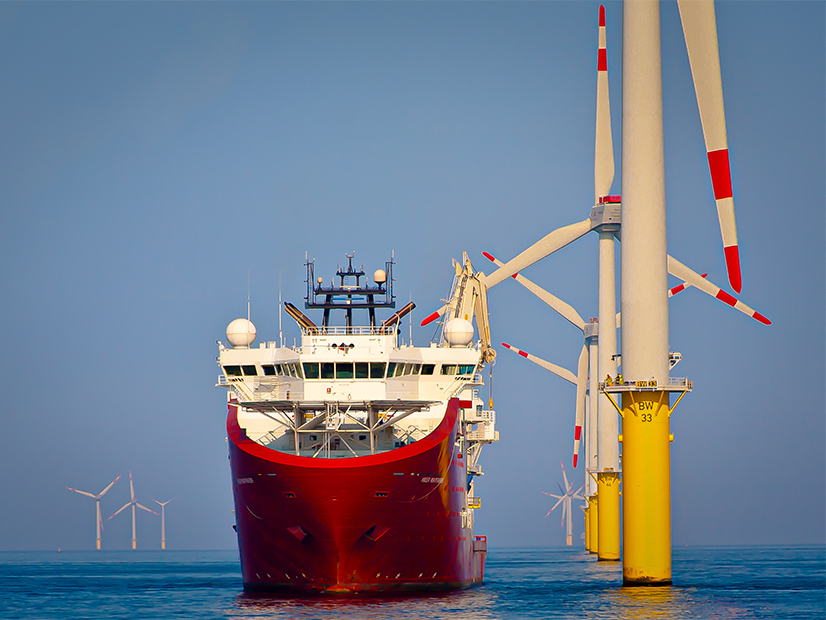New York has pushed back the contract award date in its latest offshore wind solicitation, and invited developers who submitted proposals to rebid at lower prices.
The New York State Energy Research and Development Authority (NYSERDA) said the addendum is intended “to ensure the most cost-effective outcome of the solicitation for ratepayers.”
NYSERDA, which is leading the state’s offshore wind development efforts, said on its website the move was in response to guidance issued in April and May by the Internal Revenue Service regarding tax credit eligibility through the Inflation Reduction Act.
The deadline for bids in New York’s 2022 solicitation was Jan. 26, 2023. NYSERDA at the time called it a robust and record-setting response — 100 proposals for eight projects from six developers. The details not only would help the state make huge strides in its energy transition but help create the local offshore wind industry envisioned by the state.
It said Jan. 27 that it expected to announce awards in the spring of this year.
In the July 27 memo to bidders, NYSERDA said it now expects to announce awards in the fourth quarter of 2023.
NYSERDA said the addendum is “another opportunity for updated pricing to ensure the most competitive award group.”
It said bidders could submit prices identical to or lower than their original bids but could make no other changes or propose higher prices.
Headwinds
Offshore wind construction has become much more expensive in the past two years — so much so that many developers are seeking to renegotiate or even cancel their financial agreements.
Commonwealth Wind in Massachusetts has reached a deal to pay nearly $50 million to cancel its power purchase agreements with three utilities, and SouthCoast Wind is seeking a similar exit. Both have said they hope to rebid in the next solicitation, at a higher cost.
The developers of the Beacon, Empire and Sunrise projects — every contracted wind project off the New York coast not already under construction — told the state Public Service Commission in June they may not be able to proceed without more money.
They want the type of inflation adjustment mechanism that was offered in New York’s 2022 solicitation, but not in the two previous solicitations.
The situation is similar in other states: Most developers who locked in their revenue but not their costs before surges in inflation and interest rates now say their projects cannot be financed as negotiated.
Much of the overrun likely will trickle down to the general population through some combination of higher utility rates, taxes and consumer prices.
That does not sit well with some stakeholders, especially given the secretive nature of offshore wind development. Most substantive details and dollar figures are redacted from public versions of developers’ supporting documentation.
The City of New York and a group of 55 large commercial/industrial/institutional energy users filed a motion (PSC Case 15-E-0302) on Thursday to force Beacon, Empire and Sunrise to disclose more information on their request for more money.
“Petitioners’ excessive redactions of critical information means that customers do not know the total amount of additional compensation that these developers are asking them to pay, nor can they evaluate the claimed need for such relief, and they are being deprived of the opportunity to develop fully-informed comments responsive to the Petitions,” they wrote.
“Petitioners’ overbroad use of redactions reveals a lack of regard for the right of utility customers to be adequately informed as to the costs they are being asked to bear.”
Inflation has eased in 2023 but interest rates have not.
Rhode Island Energy in July rejected the lone proposal submitted in Rhode Island’s latest offshore wind solicitation as too expensive for that state’s ratepayers.




